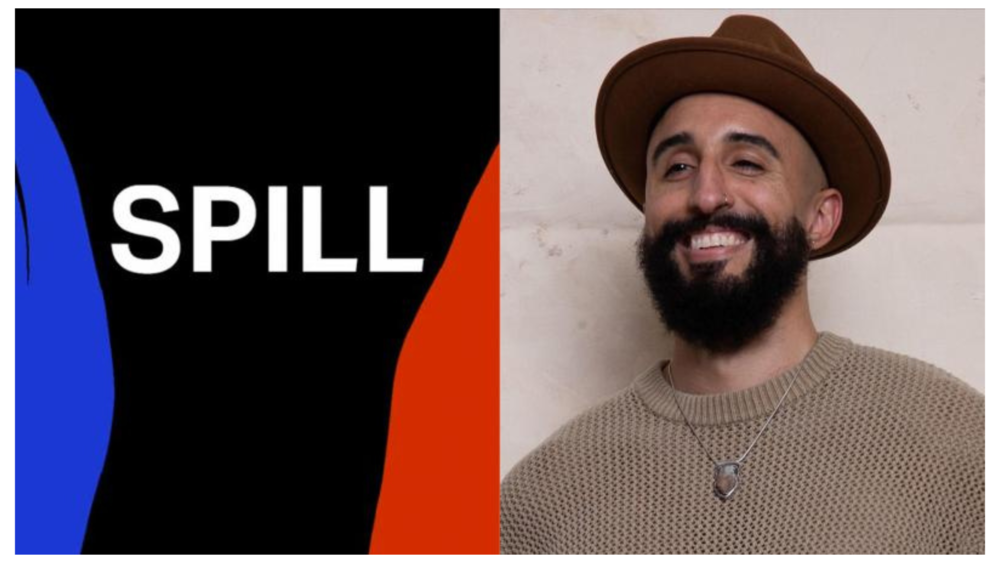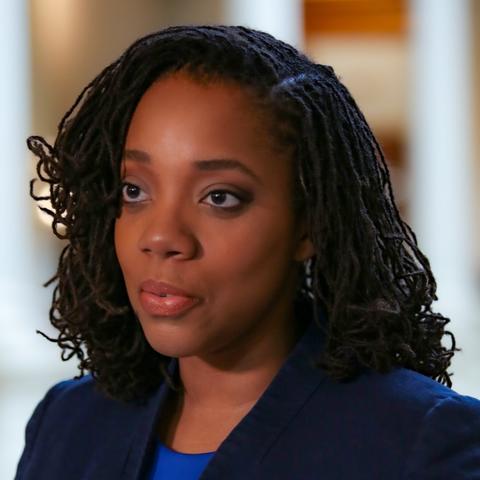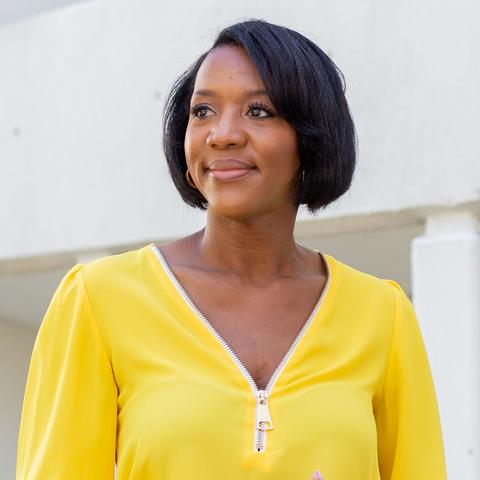
Section Branding
Header Content
Unlike Threads, Spill isn't trying to be the new Twitter. Safe spaces for minorities is the aim
Primary Content
LISTEN: Leah Fleming talks to Spill co-founder Alphonzo "Phonz" Terrell about how they're ensuring the nascent social media platform will be different from Twitter.

Twitter has been in the headlines since controversial owner Elon Musk took over the platform. Back in April, NPR left Twitter after being falsely labeled as state-affiliated media. And recently, the billionaire faced more backlash as he limited tweet views for people who don't pay for verified Twitter accounts and threatened to sue Meta after the launch of its new Threads platform.
But the irony is that one of the apps aiming to compete with Twitter comes from employees that Musk laid off. Alphonzo "Phonz" Terell and DeVaris Brown created the platform Spill after being let go from Twitter. The company has employees all over the country, including here in Georgia. Over the weekend, a large number of users created accounts on the platform. Here to talk to GPB's Leah Fleming about that is Spill co-founder Alphonzo "Phonz" Terrell.
Leah Fleming: So let us start right here: For people who are learning about Spill for the first time, give me your elevator pitch. What is it?
Alphonzo Terrell: Sure. For everybody out there just discovering Spill, we are visual conversation that moves at the speed of culture. And our vision is to become the de facto place to discuss and discover culture worldwide. We have been just building this platform. As some of you may know, I worked at Twitter for about three years. I led the social media team there and I met my co-founder, DeVaris, as you mentioned, about four years ago. We started on the first day at the same time, were some of the only — the two or three Black folks, I think, in our entire group at the time, and we just became fast friends. And so, you know, as things were speeding up over the years, we had always wanted to build something together. And the opportunity really presented itself when I was let go by Elon Musk on Nov. 4, about seven, eight months ago. And that was when we really started building Spill at that time.
Leah Fleming: You created Spill and you had to, you know, of course, get up some seed money. And I read it was about $2.7 million. So talk a little bit about that, if you will — and, you know, because certainly creating an app is expensive.
Alphonzo Terrell: It is not cheap. It is not cheap, Leah. Yeah, we announced Spill last December. We had very modest expectations. We would have been happy with, you know, a couple thousand people saying, "Hey, they worked at Twitter, we'll give it a shot." But I think our vision to really focus and build for Black communities, queer communities, other marginalized groups that often get the most hate but also drive the most culture online, always, really resonated with folks. And so we had 25,000 signups in less than a day, 50,000 by the end of the week. And that really put us in a position to, you know, go to funders and really tell the story of the company we wanted to build for Spill. So as of right now, we've raised over $3 million, actually, for the platform, and that's really given us the ability to build super fast and get to the moment we are at today.
Leah Fleming: Mmm. So as you were saying, this app does pride itself on being really a safe space for diverse communities. How has artificial intelligence cleared the way for that? I know you've been working with that.
Alphonzo Terrell: Yeah, absolutely. You know, DeVaris and I, when we first sat down and started talking about Spill, it was really about how could we solve some of these core problems that are facing Black communities again, queer communities, but that would ultimately, as you mentioned, make a safe space for all. And, you know, really, we come from these communities. Let me just make that abundantly clear. And we have been talking about, OK, what's new in the technology space that hasn't been available for the last 15 years? And so we talked about large language model AI, but training it with people, you know, our communities, Black communities, queer communities, who get the most hate, so that it's more sensitive so that if you know there's terminology that other systems might not be as sensitive to, ours will be able to catch it. And then, of course, really, I would say even more than that, just making it a core value of the company. This is really a part of our mission. It's not just something that, you know, we're trying to solve purely with tech alone. We're going to keep evolving and building in this direction, and we think it's going to just make an incredible social experience for all.
Leah Fleming: So I know that, you know, that is something that many people feel Twitter has struggled with. And I know there was a — I don't know if it was officially, but a Black Twitter. And so I'm thinking that the creation of this platform, especially paying attention to AI, I think this might be very attractive to different communities. Is that something that you — you saw when you were at at Twitter, the struggle to get this part right?
Alphonzo Terrell: Yeah, 100%. And I think all social platforms have struggled with this. You know, I don't think it's just been one. I think, you know, marginalized communities have always had to elbow to create space on social platforms, whether it was, you know, YouTube or Vine or even, you know, TikTok today. And I think, you know, there's an opportunity and clearly a need, especially with what we've seen over the past few weeks, for a safe space, for a safe haven where you can come there and just feel free to express and create community and be your full self without having all the, you know, other drama and things to worry about. So yeah, we're really excited by the response and we think we're just getting started here.
Leah Fleming: Now, you are not the only app out there that is trying to be king of this space. And I'm wondering, do you do you think it's possible to one day overtake Twitter and really be the king of the market?
Alphonzo Terrell: Yeah, I'll be honest with you. I don't think there's ever another anything. There's never another Twitter. There's never another whatever. And we had no interest, especially having worked there, in replicating some things that were going on. We knew where the weaknesses were. And so we really feel at Spill that it's time for the next evolution of social media. We're building for the next 20 years, which is why we're looking at the communities, the technology, you know, the vision that we think is going to resonate in the future, and especially for young folks coming up who may never have even used Twitter. You know, a lot of folks under 25, it was, you know, de facto because it looked like, oh, I'm going to go there and get, you know, canceled or whatever it might be. It's we want to create a space where you can have that excitement of real-time conversation and community, without that — that you may never have never even experienced before.
Leah Fleming: So right now the app is invite only. Do you think that you will perhaps change that in the future?
Alphonzo Terrell: I think eventually we will get there. But we are very early days in our build. Again, we've only been at this for seven months and really building for the last four or five months and been in the App Store for three weeks. So we have a lot to build, more to come and that's really why we're going to stay in this invite-only phase while we work out the kinks. And I know a lot of people are asking about Android and all these things —
Leah Fleming: Yes!
Alphonzo Terrell: It's coming, it's coming! You want invite codes? Get on the waitlist: Spill.com. We are sending out invites every single day. Don't worry, we're coming for you. But most importantly, I just want to say thank you to everyone and we really appreciate the support and more to come.
Leah Fleming: And we'd like to thank you so much, Phonz, for taking some time with us.
Alphonzo Terrell: Thank you so much, Leah. Appreciate it.
Leah Fleming: This is GPB.


